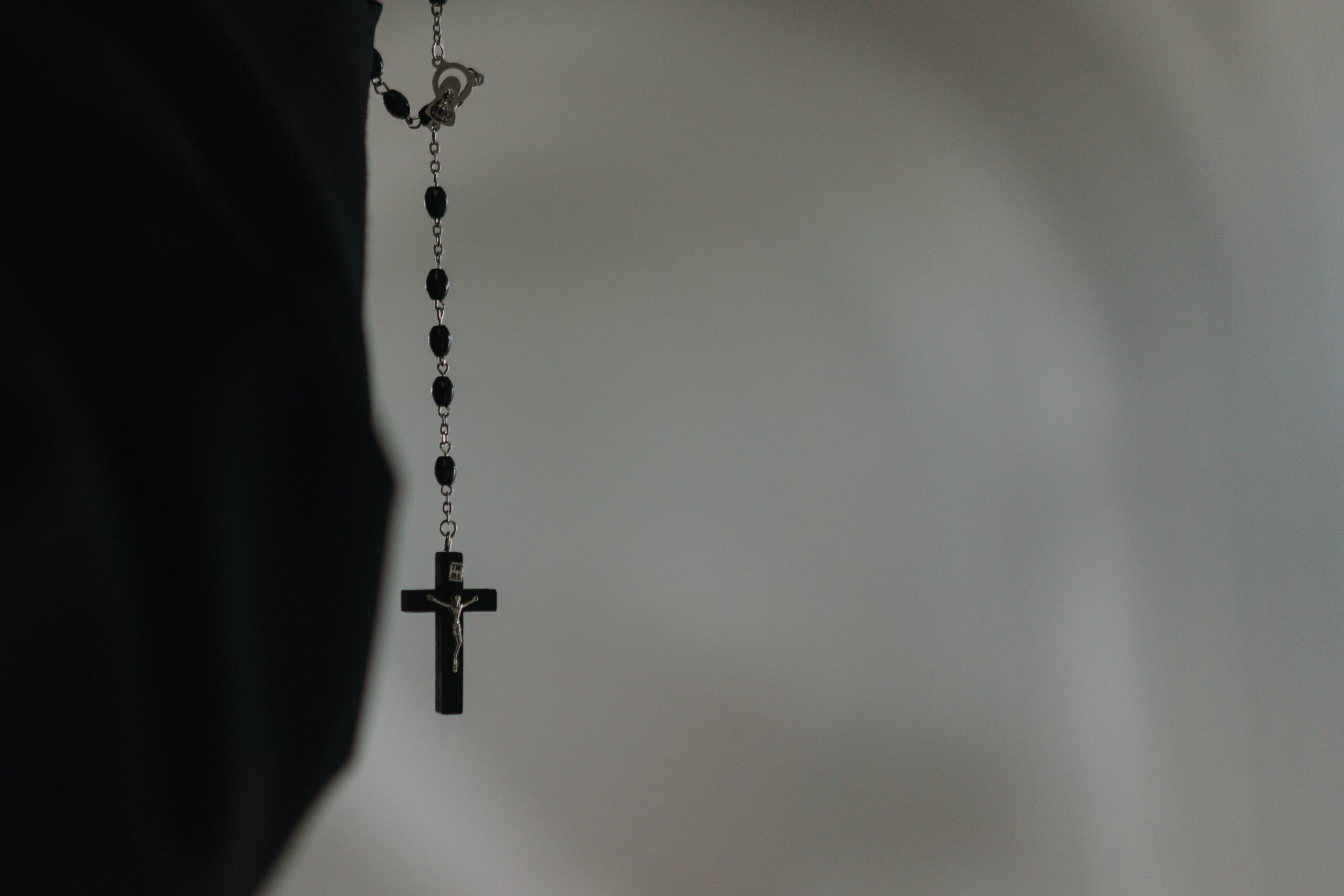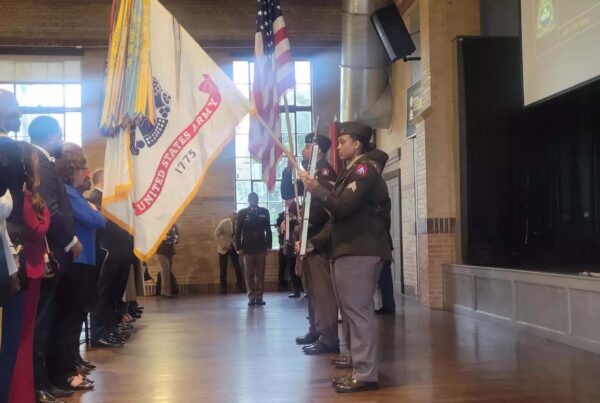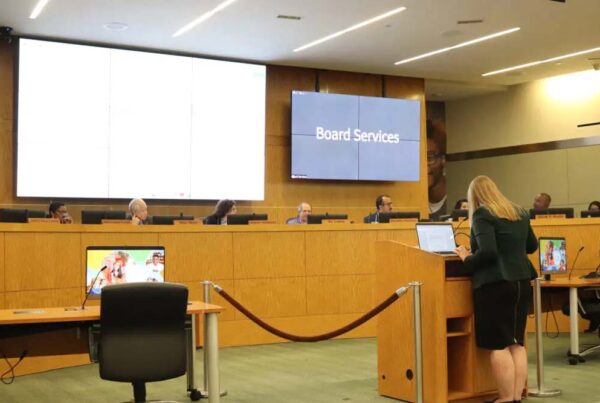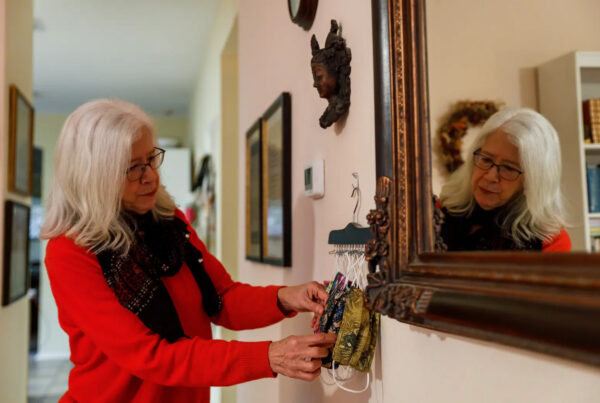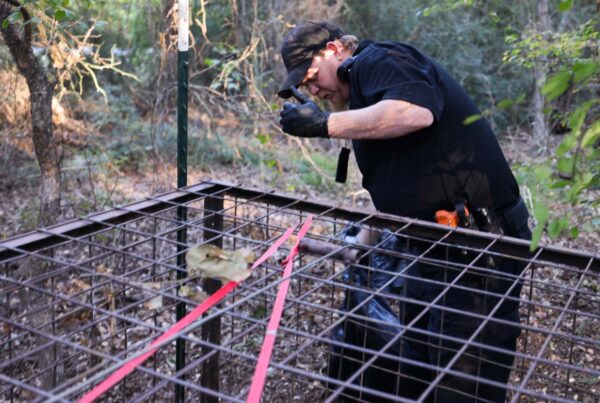Pope Francis fired a Texas bishop over the weekend, a rare move that some say highlights the growing divide between the Vatican and more conservative factions of the Catholic Church.
Bishop Joseph Strickland of Tyler publicly clashed with the pope over social and theological issues. He even went so far as to say that Pope Francis was undermining the Catholic faith on social media last summer.
The Vatican did not give a reason publicly for Bishop Strickland’s removal, but it came following a formal investigation into his leadership.
Ruth Graham, a Texas-based national correspondent at The New York Times who covers religion, joined the Standard to discuss. Listen to the interview above or read the transcript below.
This transcript has been lightly edited for clarity:

Tyler Bishop Joseph Strickland. Photo courtesy of Peytonlow at English Wikipedia, CC BY-SA 3.0, via Wikimedia Commons
Texas Standard: You called the dismissal of Bishop Strickland rare, but just how rare are these kinds of removals?
Ruth Graham: Yeah, it is a very rare event. It’s not completely unknown for the Vatican to sort of nudge a bishop into retirement. Usually, they’re given the offer to resign. That happened as recently as this summer with a diocese in Tennessee, where there’d been accusations of mismanagement and poor leadership there. That’s not totally unheard of.
What’s much more unusual is to push out a sort of ideological combatant. I should emphasize that we don’t know why Bishop Strickland was removed. There might be much more to it than that. But in terms of his national profile, he was really known as a sharp critic of the Vatican.
It’s also very unusual for a bishop in his position to not take the opportunity to resign. He said that he would consider that abandoning his flock. Basically, he was like “you have to fire me if you want me out.” That is ultimately what it came to.
Can you elaborate on the specific disagreements between Pope Francis and Bishop Strickland ideologically?
Bishop Strickland is probably the most outspoken American example of a wing of the church that sees Francis as really dangerously liberal on issues like abortion and same-sex marriage. Just last week, the pope clarified that trans Catholics can serve as godparents and receive the sacrament of baptism in certain circumstances. Things like that are really troublesome to some more conservative Catholics.
Then there’s theological issues, too. It’s a range of social, theological and almost political differences here. There’s a pretty strong fraction in the American church. Pope Francis has said there’s these elements in the American church that he considers reactionary. It’s a pretty sharp divide at this point.
In this country, we have seen fissures in Christian denominations and official splits. I’m thinking about the Methodist church and certain Southern Baptist churches. I don’t want to read too much into this one dismissal, but I do wonder whether this could be a harbinger of a greater fissure to come within the American Catholic Church. What do you think?
In some senses, that is already happening or has happened. You can find a parish that sort of fits with where you are ideologically and theologically on a host of these issues. Different priests have pretty widely divergent views.
At the same time, a schism in the Catholic Church would be a much larger, more difficult event than a Protestant denomination splitting. There are some on the right wing of the church who have floated that term, “schism.” I don’t think we’re on the brink of it.
Does Bishop Strickland have any recourse here, maybe an appeal or something like that?
I’m not aware of a formal appeals process, and I haven’t heard anyone discuss that in terms of his next move. He is still a bishop. He hasn’t been defrocked as a priest. He just doesn’t have the jurisdiction in East Texas anymore.
It’ll be interesting to see what his next move is. He’s certainly sort of still out there as a voice and he is still talking.


